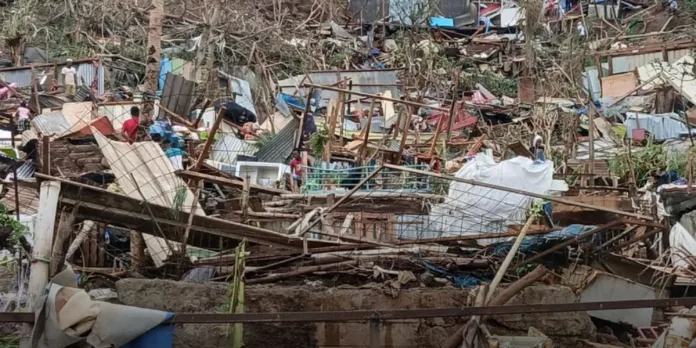Mayotte, a French overseas department located in the Indian Ocean, is grappling with the aftermath of Cyclone Chido—a storm of unprecedented severity that has disrupted life on an immense scale. Described as the worst cyclone to hit the island in a century, the chaos left in its wake is palpable; homes have been devastated, vital infrastructure obliterated, and livelihoods severely impacted as hundreds of lives have been lost.
The island’s inhabitants are in shock as rescue and relief efforts, involving both local agencies and international assistance, strive to provide a semblance of hope and reconstruction amidst the rubble. The French government, acknowledging the gravity of the unfolding humanitarian crisis, has activated military support to expedite the provision of aid and intensify rescue missions.
As relief teams work tirelessly, they face the dual challenge of providing immediate humanitarian assistance while laying the groundwork for long-term recovery and climate resilience strategies. The devastation wrought by Cyclone Chido opens urgent discussions about climate change impacts and the need for bolstered infrastructure in vulnerable regions.
The involvement of the military signifies a serious and coordinated approach in overcoming logistical and operational hurdles. This crisis, however, transcends immediate relief. It necessitates comprehensive strategies encompassing rebuilding, future disaster preparedness, and supporting the affected communities’ return to normalcy.
Perspectives
Perspective 1: Local authorities emphasize the need for enhanced preparation and resilience-building against future natural disasters. They highlight previous underestimations of cyclone threats and stress on hardening critical infrastructure and improving early warning systems. Collaborative efforts with the international community are also deemed essential to garner expertise and resources for sustainable development and recovery.
Sources:
Reuters
Reuters
Perspective 2: Environmental advocacy groups are issuing stark warnings about the exacerbating effects of climate change. They see Cyclone Chido as a harbinger of increasingly extreme weather patterns, advocating for international action on climate policies. These groups urge not just immediate relief but long-term global commitments to mitigate climate impacts, particularly for vulnerable island regions like Mayotte.
Sources:
AP
Reuters
Perspective 3: Many citizens and humanitarian workers in Mayotte express a mixture of gratitude and concern. While they appreciate the swift international response, there are growing apprehensions about rebuilding efforts and long-term support. Reflecting on past recoveries, they stress the necessity of sustained aid and monitoring to ensure resources reach all affected communities evenly and efficiently over an extended period.
Sources:
AP
Reuters
